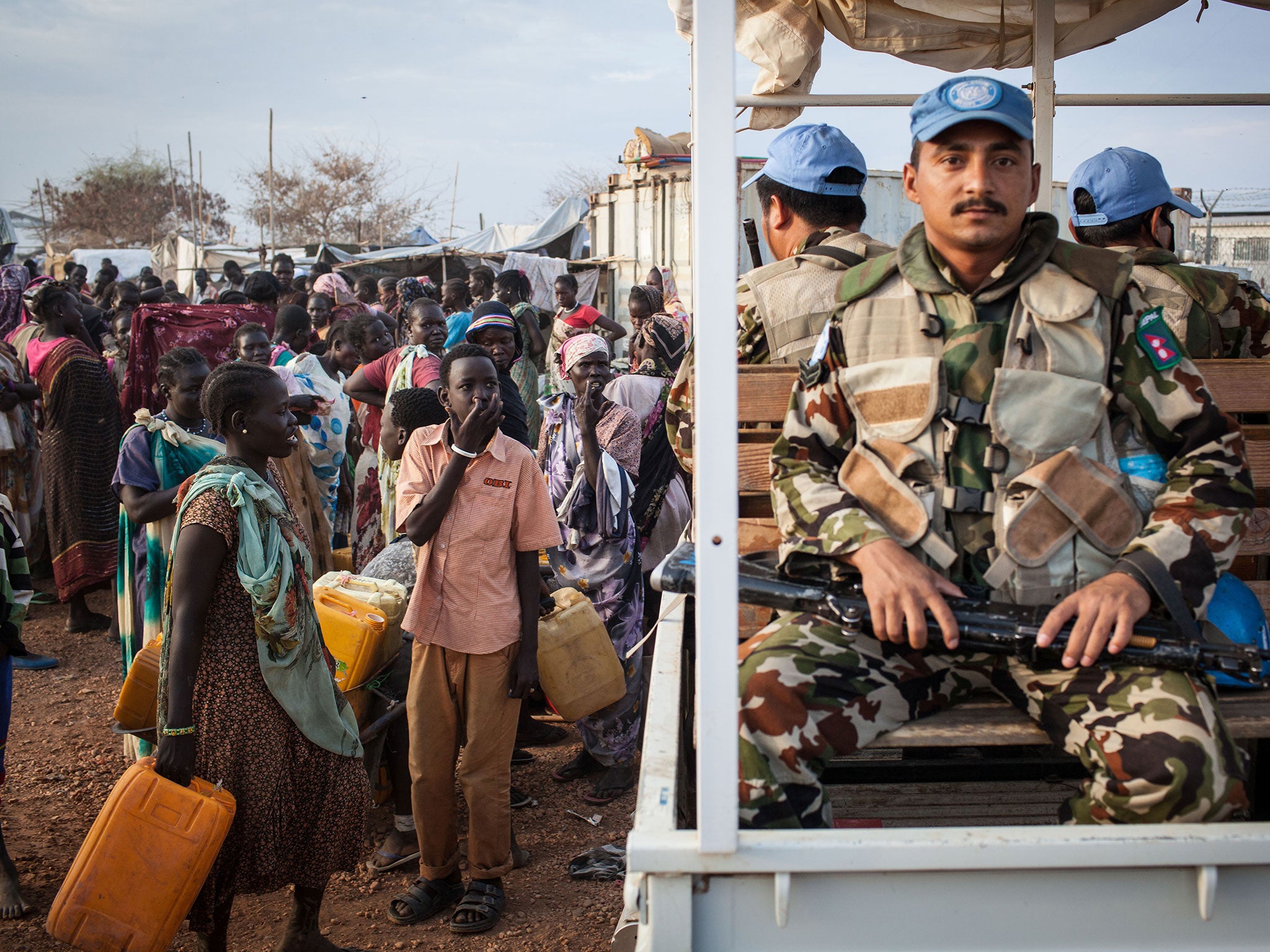Aid for Sudan's 'forgotten' victims at last
After 12 years of brutal conflict there's hope for the 6.9m people in dire need in Darfur

For almost 12 years Darfur has seen continuous violence – leaving hundreds of thousands dead, according the UN, and displacing millions from their homes.
Now, a new injection of money for humanitarian-aid projects in the region looks to ensure that the conflict in Sudan, which erupted in 2003, does not become a "forgotten crisis".
Since the uprising in the western region of the country began – leading to long-term clashes between the rebels and government forces, allied to the Janjaweed militia – the region has been in a state of lawlessness and stalemate, with many of those forced out of their homes ending up in refugee camps.
Darfur has seen 400,000 people displaced this year alone, putting pressure on NGOs and aid organisations in the area. A number of other states across Sudan are also experiencing conflict, while months of conflict in South Sudan, which declared independence in 2011, has resulted in an influx of refugees entering Sudan.
"It was an unexpected conflict. People coming in from South Sudan are without assets, they left their home, they're traumatised by the violence they've seen, many of them are unaccompanied children, so of course we moved to quickly respond to the needy," said Kate Carey of the World Food Programme (WFP).
Late on Friday night, regional mediators said that the warring parties in South Sudan had agreed to end their conflict. Hostilities started last December after months of political tension between President Salva Kiir Mayardit and his sacked deputy, Riek Machar. A previous ceasefire, signed in January, has repeatedly been breached, and yesterday the rebels accused government forces of breaking the new deal within hours of it being signed. Ms Carey admitted that giving out aid in Sudan was a "constant challenge".
Now, the UK's Department for International Development (DfID) has pledged additional funding to help humanitarian organisations. DfID will provide £11.2m to the WFP by the end of November for a food voucher programme in Darfur. This will allow up to 600,000 people to feed themselves over four months. DfID is also contributing an additional £7m to the United Nations Common Humanitarian Fund to give people forced from their homes access to basic assistance such as nutrition-enriched food, water and sanitation and health services. The cash and vouchers system allows locals to buy goods from local vendors, rather than food aid being given to community leaders to share out, in an effort to boost the local economy.
International Development Secretary Justine Greening said: "Twelve years after the crisis in Darfur came to the world's attention, the situation continues to deteriorate. As the rainy season comes to an end and fighting increases, the country's most vulnerable people will once again suffer the consequences of conflict."
She added: "The UK is demonstrating its leadership in ensuring that this does not become a forgotten crisis."
Already 6.9 million people are in dire need of humanitarian assistance. "This additional funding will help aid agencies find new ways to provide relief to the thousands of people fleeing their homes, seeking food and protection from the appalling violence," added Ms Greening.
Over the years a number of people have been the subject of arrest warrants from the International Criminal Court – including Sudan's leader, Omar al-Bashir, who faces charges of alleged crimes against humanity, war crimes and genocide.
Violence is a continual problem. Last week, the UN and African Union peacemakers said they were "deeply concerned" over allegations of the mass rape of 200 women and girls in North Darfur, but added that they were denied access into the region by Sudanese military, who were patrolling checkpoints.
One organisation to benefit from the Common Humanitarian Fund is UK-based Tearfund, which works on improving water, nutrition, sanitation, education and emergency response in remote areas.
"Diseases are rampant," said Douwe Dijkstra, the country director. He added that the crowded conditions in camps led to an increase in waterborne diseases and part of the work involved educating the Sudanese about water safety.
Tearfund also helps rebuild the livelihoods of people who have been displaced. "Their livelihoods are very fragile and can easily break down ... They have to eat into their resources, sell their cattle, sell their goats, sell whatever they have, so it's a vicious circle of becoming more and more dependent and less self-reliant," said Mr Dijkstra.
Zeljko Todorovic, who is the WFP's cash and vouchers officer in Darfur, said that even people who farmed their own land were at risk of being caught up in conflict: "There is no stability, there is no peace."
Ms Greening has said that "it is clear that Sudan needs further support," not just from the UK, "to stop this crisis from escalating".
A number of humanitarian groups agree. Care International Switzerland works with Sudan's Ministry of Health to help with water, sanitation, health, nutrition and livelihoods. The group's country director for Sudan, Zia Choudhury, says that although funding was available from many donors, "the amount available [was] still very miniature to the needs here".
Mr Choudhury added: "People are struggling to survive and cope... [and] given the number of large and high-profile crises around the world, there is much less focus on Sudan now."
Join our commenting forum
Join thought-provoking conversations, follow other Independent readers and see their replies
Comments
Bookmark popover
Removed from bookmarks